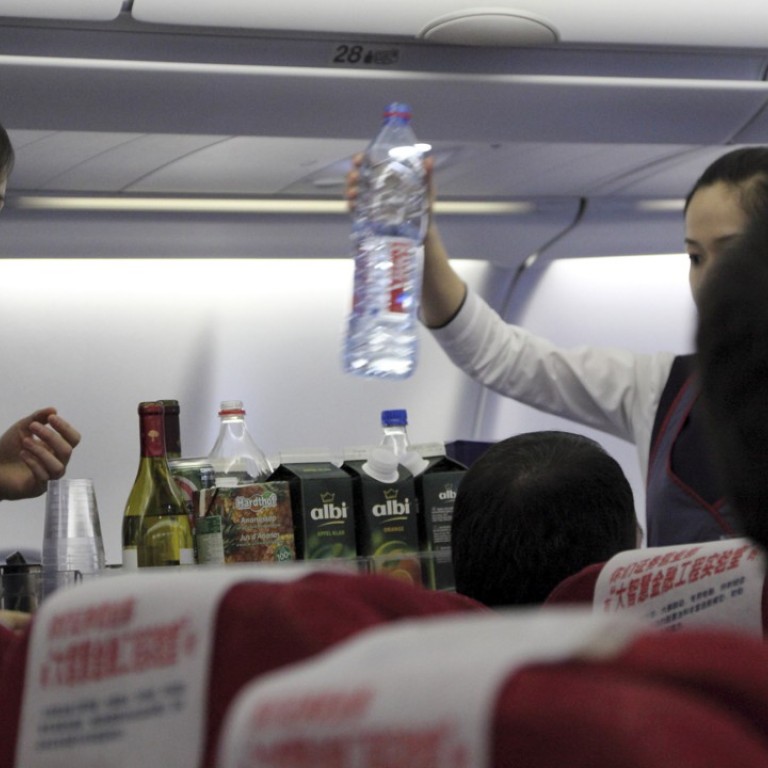
Why Hong Kong passengers are a flight attendant’s nightmare, and other cabin crew gripes
It might seem a dream job to many, but, as three Hong Kong flight attendants explain, along with the good comes the bad – long shifts, jet lag, constant tiredness, ill health ... and us, the pesky passengers
With the summer holidays in full swing, and airlines booked to capacity, this is one of the most stressful times of the year for flight attendants. Yet few travellers will be aware of the strain behind their professional smiles.
Long shifts, jet lag and irregular meals can take their toll – and then there are the passengers. Last month, a 29-year-old Cathay Pacific air hostess was hit and kicked by a Hong Kong resident on an inbound flight from Bangkok. She was frustrated at having to wait too long for her empty food tray to be collected. The passenger was arrested on arrival.
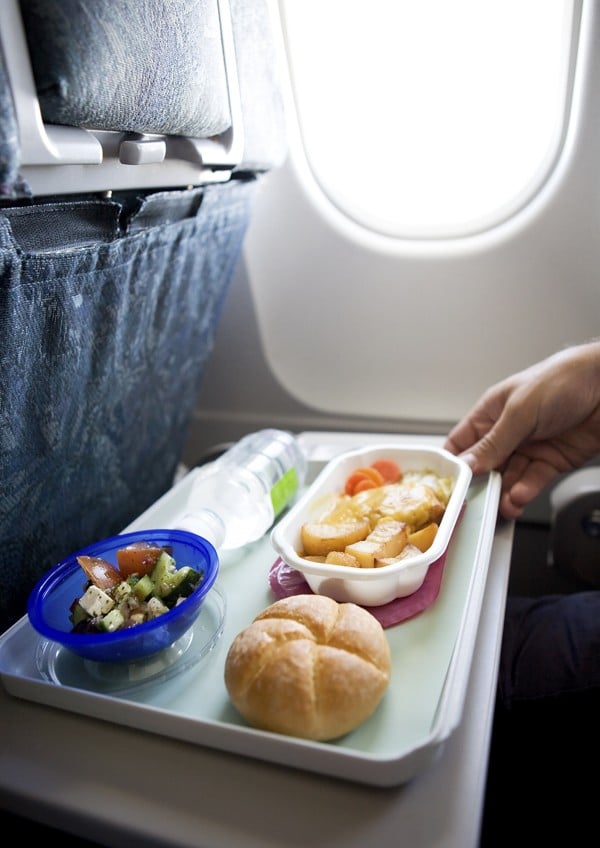
Flight attendant was ranked 174th out of 200 in an annual best-and-worst jobs reports last year by Careercast, a website for jobseekers, based on salary, environment, outlook and a number of stress factors.
Hongkongers were rated the most frustrating passengers to deal with in interviews with three Hong Kong-based flight attendants, themselves Hongkongers. All three feel that Hong Kong travellers treat them like serfs.
“Ask 10 crew members this question [who the most annoying passengers are] and seven would probably pick Hongkongers,” says male flight attendant Drew, who, like others we spoke to, is based in the city but could not reveal his real name, or that of his employer, for reasons of confidentiality.
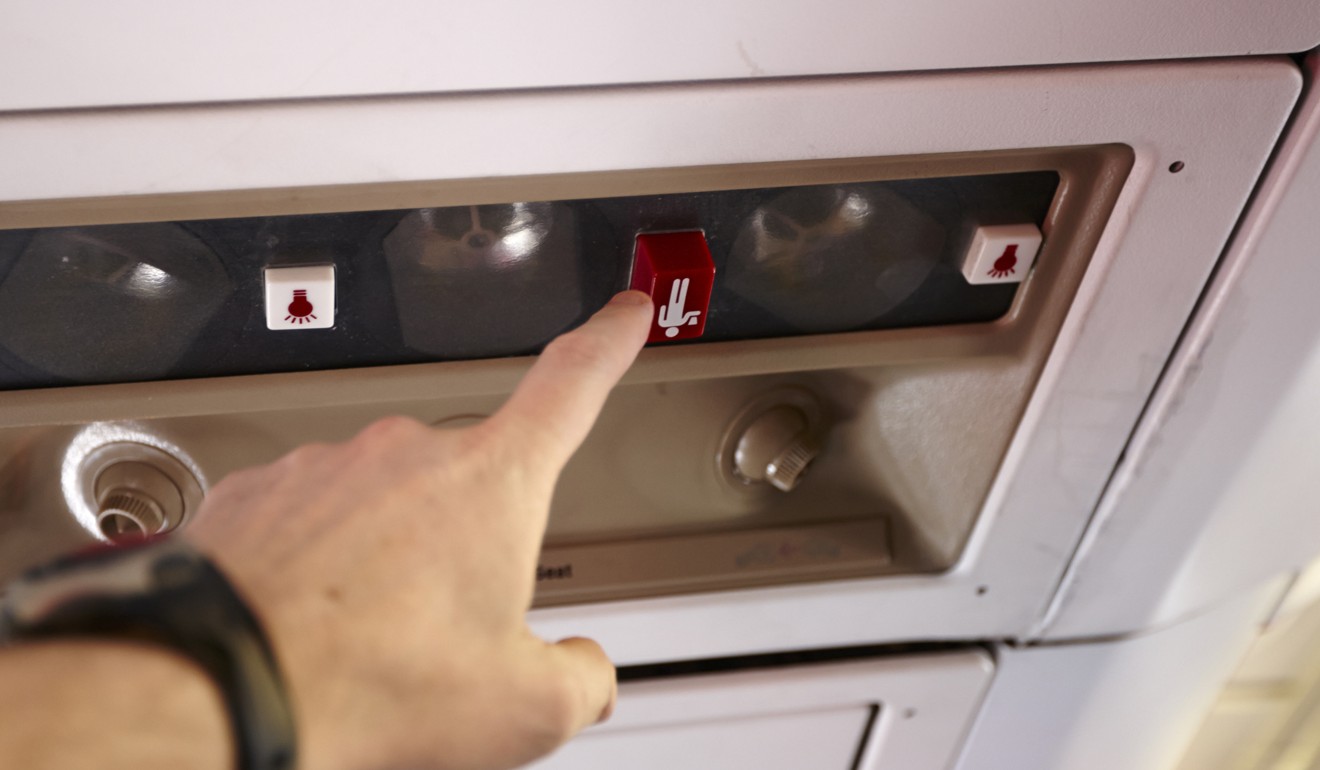
Drew, 29, says Hongkongers, more than any other passengers he has come across, have a habit of pressing the cabin call button repeatedly to summon attendants for multiple minor requests that could be dealt with in one go.
Hongkongers ... feel a sense of entitlement to the overhead compartments above their seats and think no one else should be able to use ‘their’ space
“On one particular long-distance flight, some of the crew members and I used a Fitbit to calculate our steps on board, and we had each walked more than 10,000 steps just serving entrées, drinks and cup noodles,” he says.
Drew says flights to regional destinations such as South Korea, Japan and Singapore – all popular summer holiday spots for Hong Kong families – can be the toughest for attendants.
“Hongkongers love buying fruit and souvenirs when they travel to, say, Japan. It’s the honeydew season, and they carry huge cardboard boxes of them on board. This can be a problem because they feel a sense of entitlement to the overhead compartments above their seats and think no one else should be able to use ‘their’ space.”
They also expect help storing their luggage, which isn’t a part of a flight attendant’s job, Drew says.
“We aren’t required to help passengers lift their bags into the overhead compartments, but if we spot someone struggling, we will help out. Many Hongkongers take this for granted, but when the bags are too heavy, we can get injured.”
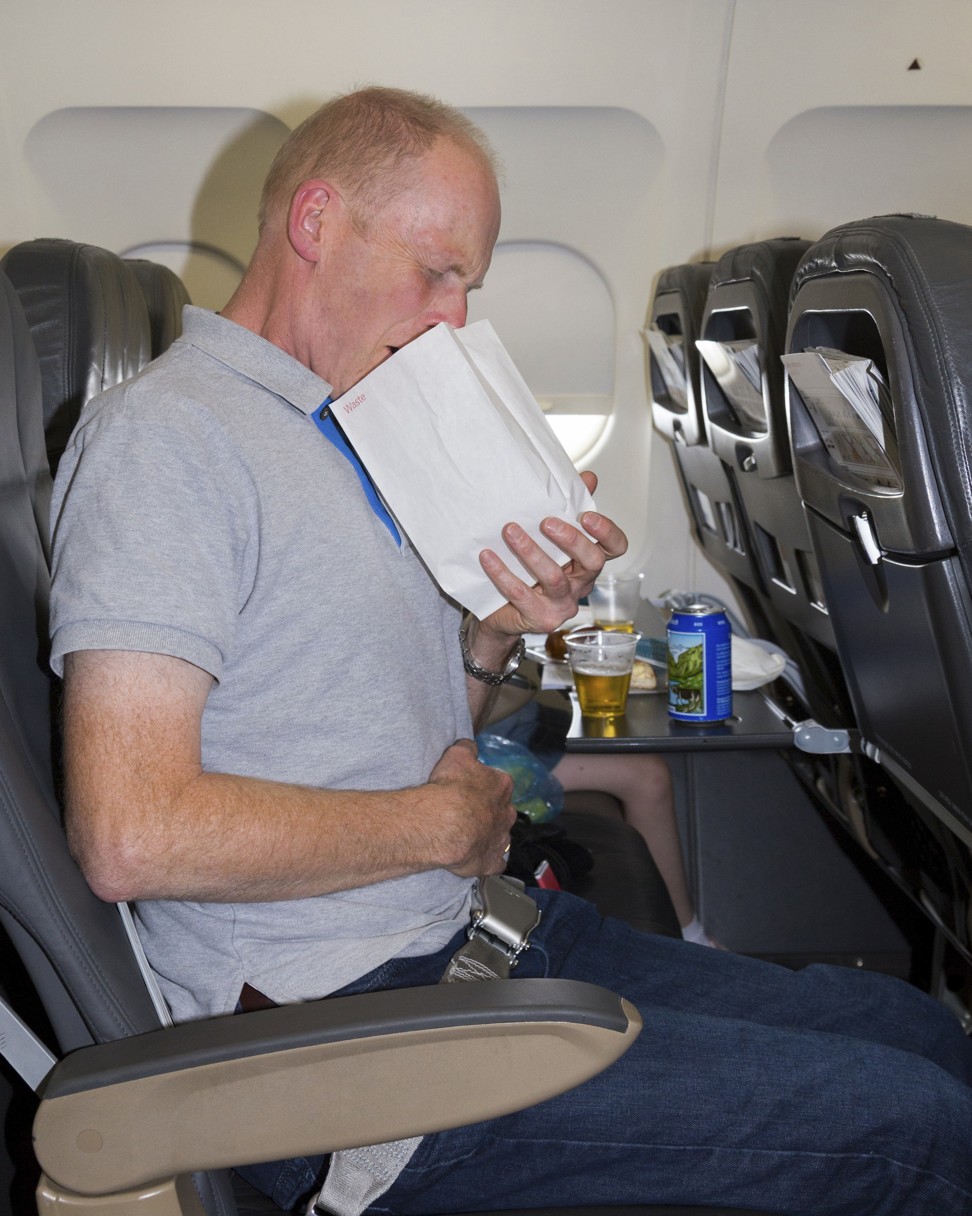
Something else that is taken for granted is the perception of free-flow alcohol. Drew points a finger at Russians as the biggest in-flight boozers. Drew says he has encountered passengers who have drunk so much that they’ve vomited and fallen unconscious. He has had to call for medics to be on hand when the plane lands.
Grace, 23, who was a cabin crew member for a Middle Eastern airline until a few months ago, says that because of the low cabin pressure, one glass of alcohol at high altitude is equivalent to drinking three glasses on the ground. “I have seen passengers so drunk they suddenly pass out and collapse in the aisle,” she says.
The entire aircraft fell abruptly ... It felt like 10 metres ... I felt my feet leave the ground and heard passengers screaming
Another Hong Kong-based male flight attendant, Sun, says they have ways to deal with passengers who become intoxicated. “When I serve gin and tonic to tipsy passengers, I pour tonic water into the glass, and then just trickle a little gin onto the rim, to prevent them from getting too drunk. Passengers who aren’t as sober as they think will fall for the trick.”
Sun, who chronicles his life as an air steward on Facebook (cabincrewsunhk), says inappropriate passenger behaviour also includes touching. A passenger once slapped Sun’s leg to get his attention as he passed his aisle seat.
“He also did this to a female flight attendant, to the point that she started tearing up. A senior flight attendant and I helped out after witnessing this, and we told him that if he kept harassing her, the police would be waiting for him at the destination.”
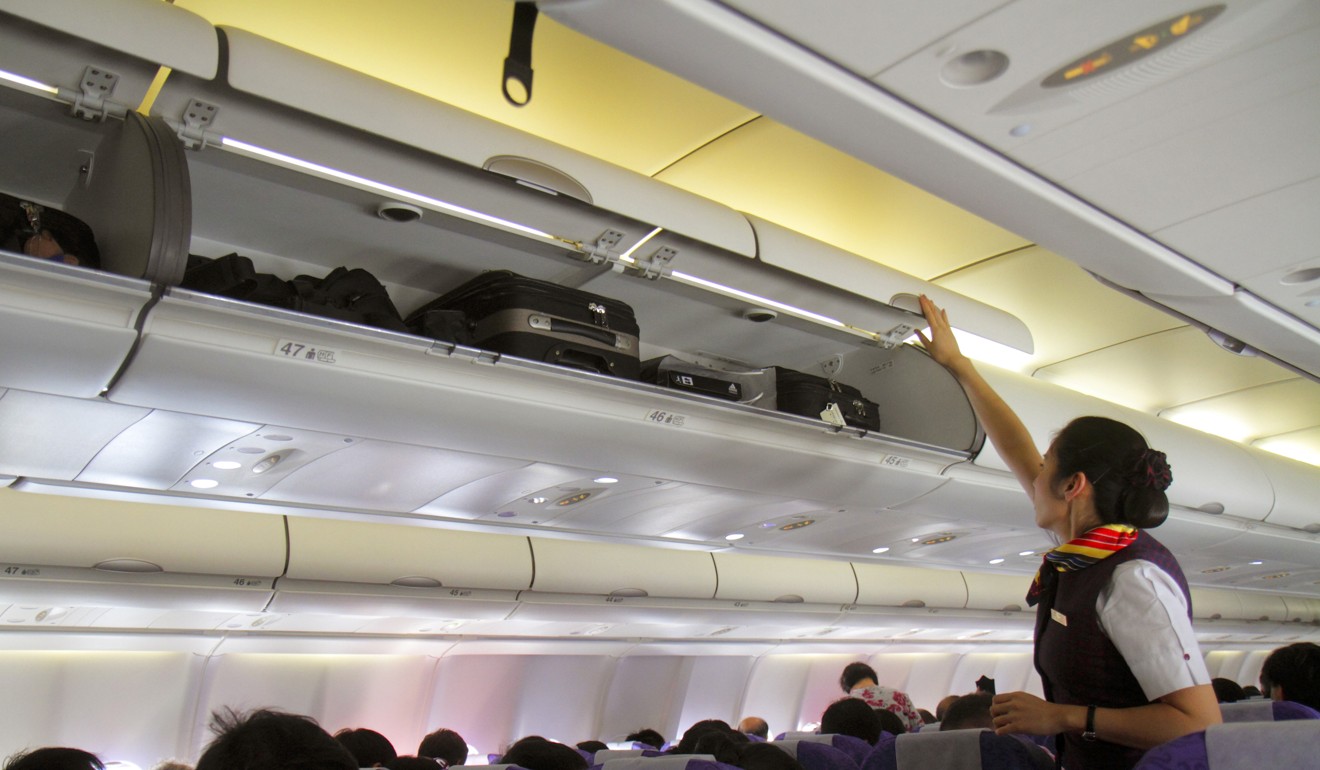
Grace says the biggest problem she encountered – on flights from the Middle East bound for Hong Kong – was “highly systematic” theft.
“They [thieves] work in small, organised teams,” she says. “These people would board and walk around the entire plane, observe who’s sitting where, what passengers’ belongings look like, if there are any luxury brands or expensive items around, and how the seats and overhead compartments work. When the lights are dimmed, these thieves start to go around, steal from bags, and then change into different outfits.
“One time, a thief came over to the galley to distract us and buy time for his accomplices. He pointed at my boyfriend, who happened to be on the flight, and accused him of being a thief, inadvertently implicating himself. We handed him and his team to the police upon touchdown.”
Unreasonable passengers are not a flight attendant’s only concern, however. The three crew members interviewed by the Post all recalled experiencing violent turbulence while at high altitude.
“Clear-air turbulence is the one to be worried about, because it’s undetectable. It might look clear and sunny outside, but the plane suddenly plunges at great speed due to a stream of unstable airflow,” Drew says.
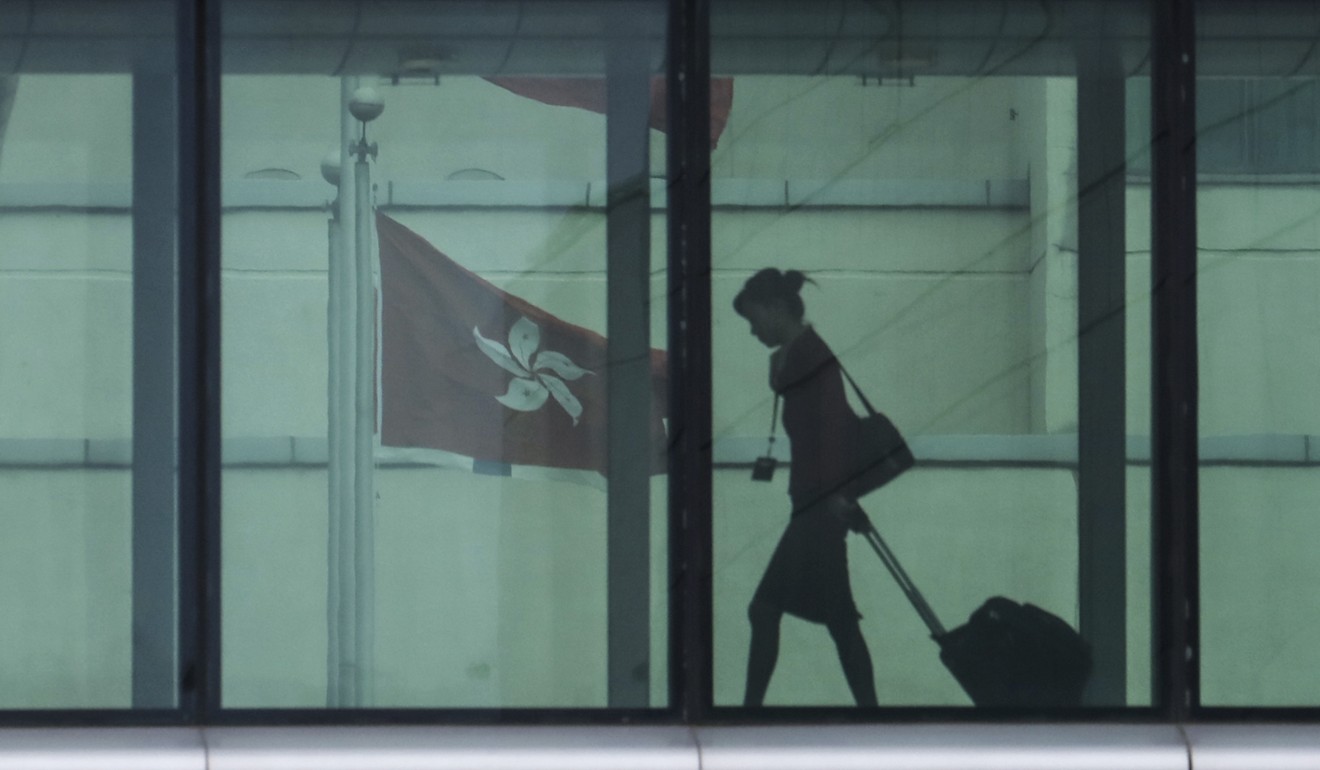
He recalls manning a 90kg food cart when a plane hit such an air pocket. “I had to grab the food cart with one hand, and a passenger’s seat with the other to prevent myself from getting thrown upwards. Some female flight attendants with a smaller build can get thrown upwards if they aren’t quick enough to grab onto something.”
Grace recalls experiencing a similar problem on a flight to India. “The entire aircraft fell abruptly by about two metres. It felt like 10 metres, though. I felt my feet leave the ground and heard passengers screaming,” she says.
When I serve gin and tonic to tipsy passengers, I pour tonic water into the glass, and then just trickle a little gin onto the rim
Ultimately, the reason most flight attendants quit their jobs is health concerns, according to Drew. “Jet lag and the continuous lack of sleep for years are major contributing factors to many crew members developing cancer. Radiation is one factor behind this,” he says, explaining that flight crew are exposed to radiation from space. “But it’s also because we constantly have to keep getting used to different time zones and not sleeping very well.”
In-flight entrées eaten too often can also lead to health problems. “When you’re up in the air, your taste buds become very weak. So the entrées that we serve are saturated with sugar, salt and other flavourings. Crew members don’t have a choice but to eat unhealthily for years,” says Drew.
He doesn’t see a bright future for himself in his current job. It takes 10 years to get promoted and it comes with only a meagre pay rise, he says.
“Only about 2 per cent of an airline’s flight attendants can climb to the highest rank, which can take decades, and there are more than 10,000 flight attendants [at his airline]. With so much uncertainty about the chance of getting a promotion and pay rise, many people lose hope in the company and the industry.”
Despite the negatives, Grace says she enjoyed being a flight attendant and hopes to return to work in the industry after taking a sabbatical. She was able to travel widely, meet a lot of people, and learn about different cultures from those she encountered.
“I moved to Dubai for almost two years, and this made me independent and expanded my world view,” she says. She also appreciated the lack of office drama; she rarely saw the same people for more than the duration of a single roster. Senior management and supervisors would not be calling her during off-hours, either.
Drew says the best thing about the job is the large amount of personal time and holidays he gets, because his working hours are flexible. If he wants to earn more, he can bid for more rosters each month, and fewer if he wants to take a break. “We are paid an hourly rate, not a monthly rate,” he explains.
Sun enjoys occasionally being in the passenger seat. He says one of his favourite things about the job is the 90 per cent discount he is entitled to when buying tickets to fly with the airline he works for. And he’s always considerate to the flight attendants.
